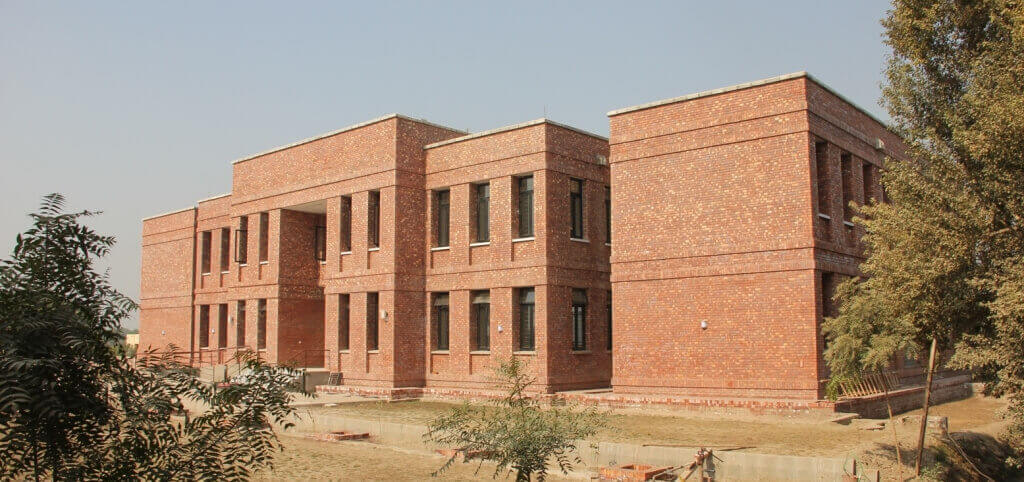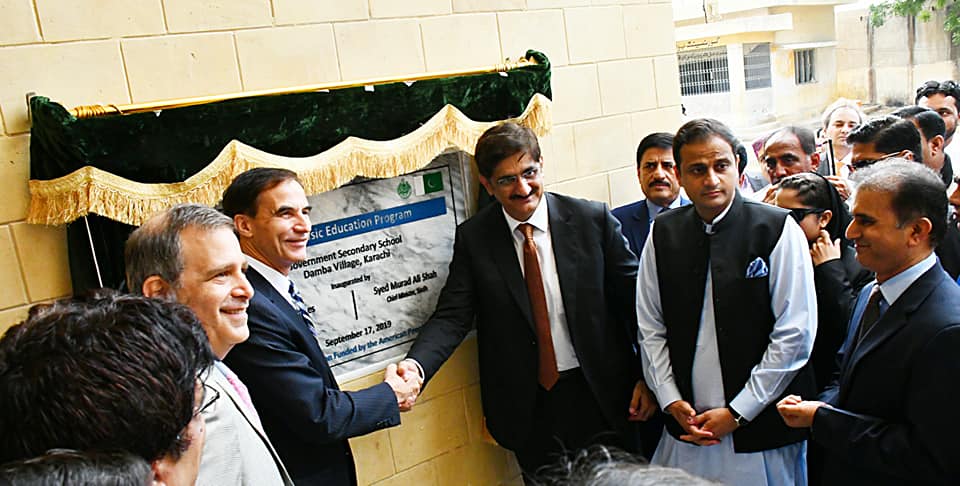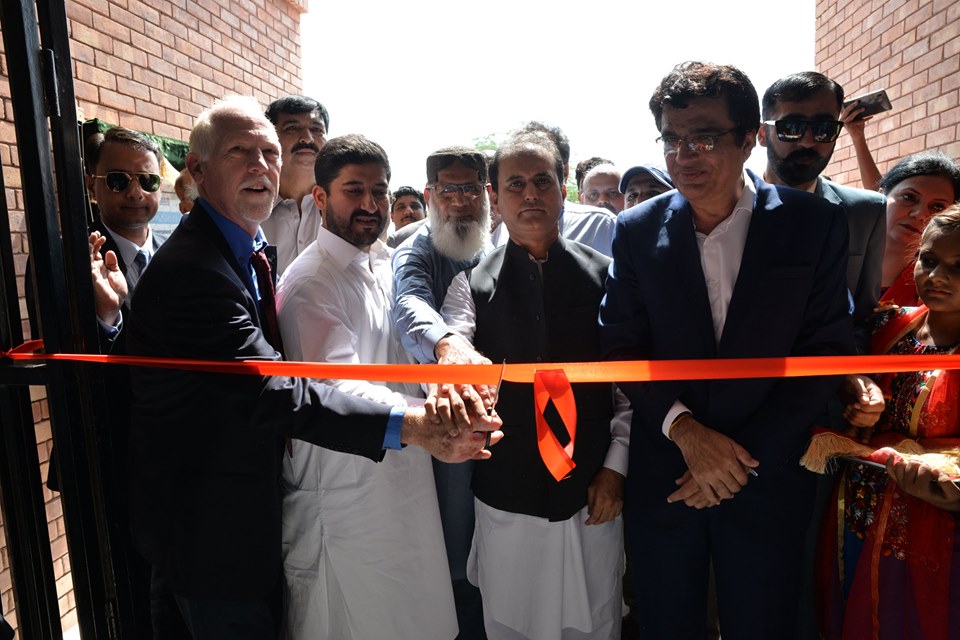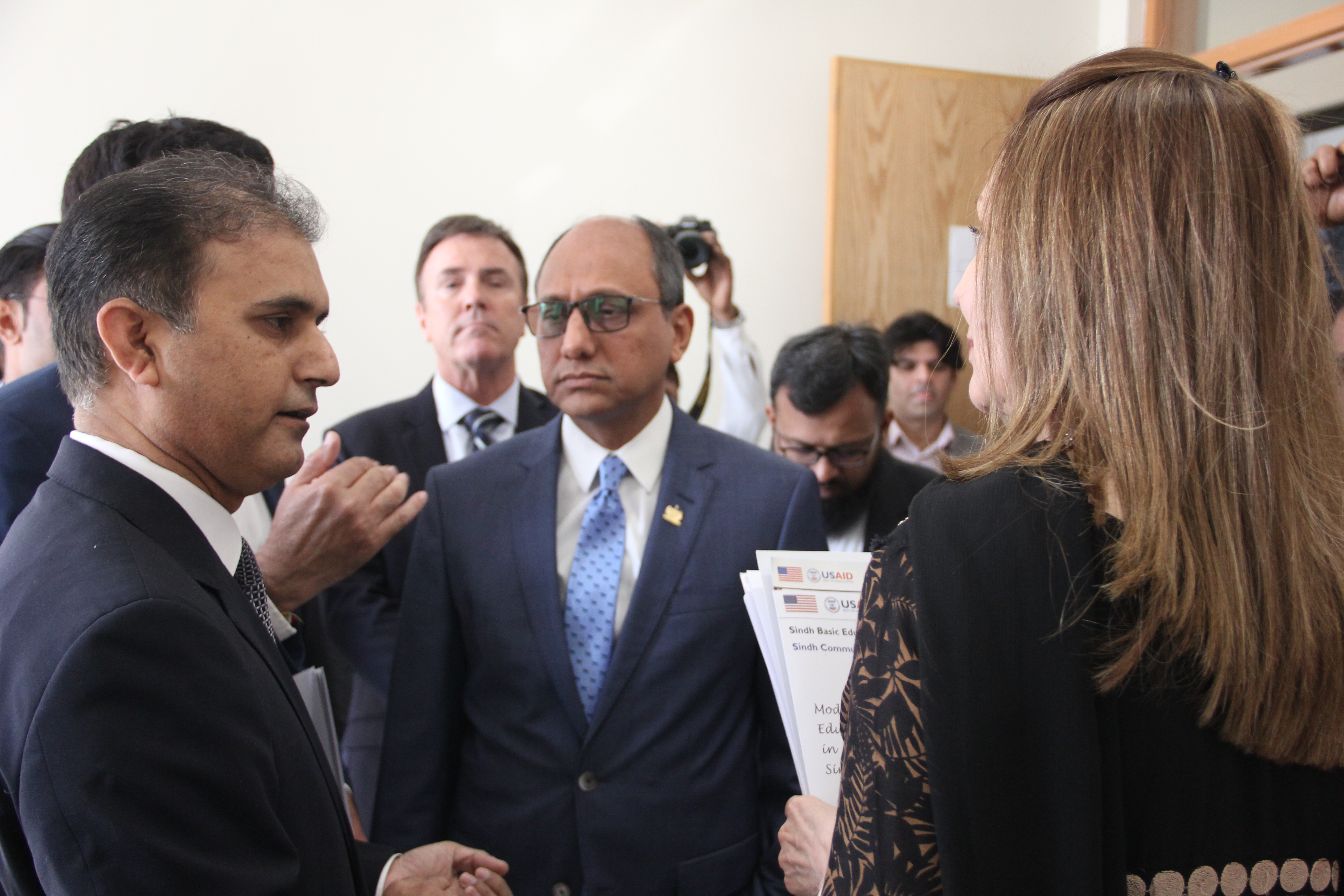Sindh Basic Education Program (SBEP) is a five year initiative worth $155 million funded-by USAID to support Government of Sindh in increasing and sustaining the enrolment of children in primary, middle and secondary schools. The planning period is from 2012 to 2016 (extension till September 2018). Government of Sindh will be contributing additional $10million USD towards this program and is working collectively with USAID towards improving quality and access to education for the children of Sindh.
This transformation will be achieved through SBEP's 7 major components:
- 1. Construction of schools affected by 2010 floods
-
2. Merge, consolidate & upgrade government schools by improving Govt. of Sindh policy
- 3. Improve early grade reading in primary schools
- 4. Community mobilization and improve nutritional status of children
- 5. Assistance to Education Department
- 6. Engineering, construction design and supervision
- 7. Monitoring & Evaluation
Program Management & Implementation Unit (PMIU)
To ensure transparent and efficient management of Sindh Basic Education Program (SBEP), the Education & Literacy Department, Government of Sindh established a Program Management & Implementation Unit (PMIU). For smooth running of the program, PMIU is headed by SBEP Program Director, a grade 19/20 officer, who reports to Secretary Education & Literacy, Government of Sindh.
PMIU's organogram:
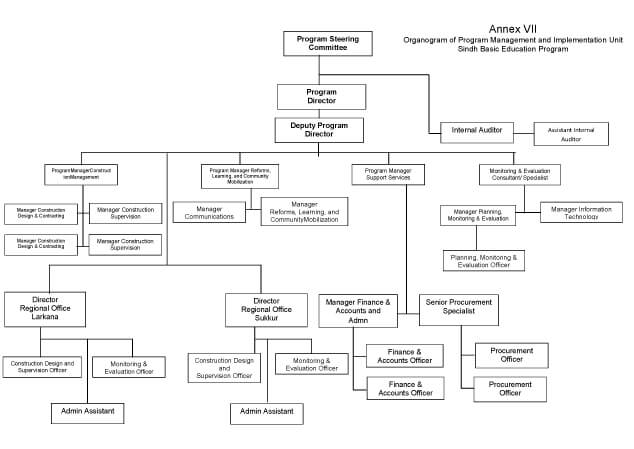
PMIU comprises of the following sections:
- Construction Management
- Learning, Reforms & Community Mobilization
- Support Services
- Human Resources and Planning
- Monitoring & Evaluation
Major components of SBEP include reconstruction of approximately 106 new schools (1400 classrooms) in flood-affected and other areas (hard component); improve reading skills of 400,000 children; engaging up to 400 communities in the construction, operation, and maintenance of schools over five years and establish effective public/private partnerships to manage these schools and ensure enrollment of at least 10,000 girls (soft components). Major targets of the soft components of Program are to increase knowledge and professional skills of 15,000 primary school teachers, providing non-formal educational opportunities to 30,000 out-of-school children, provide capacity building opportunities to 500 government officials, increase availability of adequate health care facilities for children and train 500 government district officers/supervisors, teachers, head-teachers in developing, implementing and monitoring Early Grade Reading Assessment (EGRA) and Early Grade Math Assessment (EGMA).
PMIU Achievements:
- Site assessment of 875 schools
- 33 government schools are under construction at Khairpur, Sukkur and Larkana districts
- 37 SBEP targeted schools notified as campus schools with 76 schools consolidated as per GoS Consolidation Policy
- Twenty private land owners have donated their lands in Khairpur, Sukkur , Larkana and Dadu to Education & Literacy Department for reconstruction of schools under this program
- Partnership with Rotary International established to equip Science and Computer Labs in campus schools and to provide reading and mathematics materials to 1,100 school libraries
Program Steering Committee (PSC):
Program Steering Committee (PSC) is responsible to monitor and review the progress of the program through coordination among Government of Sindh departments and USAID stakeholders. Government of Sindh established it with representation from USAID. PMIU acts as Secretariat of the PSC. The committee is chaired by Secretary, Education & Literacy Department.
- Members of PSC include the following:
- Secretary Education
- Additional Secretary (Finance)
- Planning & Development
- SBEP Program Director
- Chief Reform Support Unit (RSU)
- Director of schools
- Deputy Commissioners of concerned districts

